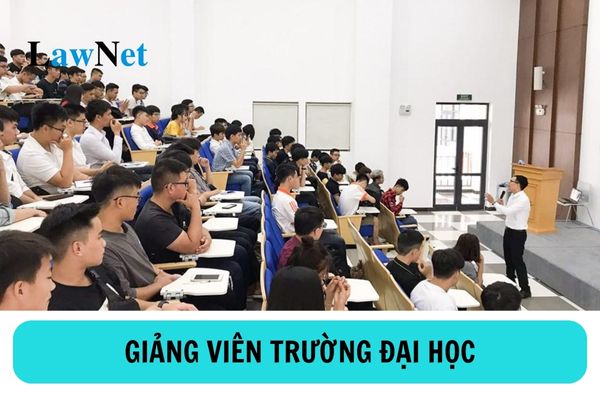What are requirements for developing learning outcomes standards for higher education training programs in Vietnam?
What are requirements for developing learning outcomes standards for higher education training programs in Vietnam?
According to Article 5 of Circular 17/2021/TT-BGDDT, the learning outcomes standards for higher education training programs in Vietnam must meet the following requirements:
- Must be clear and practical, reflecting the learning outcomes that graduates need to achieve regarding general understanding and core competencies at the education level, as well as specific requirements of the field of study.
- Must be measurable and assessable according to cognitive levels, serving as a basis for designing, implementing, and improving content and teaching methods; assessing learning outcomes and issuing diplomas to learners.
- Must be consistent with the objectives of the educational program, clearly demonstrating a significant contribution and reflecting high representational requirements of employers and other stakeholders.
- Must specify the particular education level and meet the output standards regarding knowledge, skills, autonomy, responsibility, and necessary competencies as prescribed for the corresponding education level in the Vietnam National Qualifications Framework.
- Must ensure articulation with entry-level standards of higher-level education programs (if any), whilst creating horizontal articulation opportunities between programs of the same education level, especially among programs in the same discipline or field.
- Must be concretized sufficiently and clearly in the output standards of modules and components within the educational program, and be systematically implemented through the linkage between the modules and components.
- Must ensure feasibility, suitable with the program workload so that the majority of learners who meet the entry-level standards can complete the educational program within the standard time.

What are requirements for developing learning outcomes standards for higher education training programs in Vietnam? (Image from the Internet)
What are the requirements for the entry standards of higher education programs in Vietnam?
According to Article 6 of Circular 17/2021/TT-BGDDT, the entry standards of educational programs must meet the following requirements:
- The entry standards of the educational program must clearly define the minimum requirements regarding education level, competencies, and relevant experience suitable for each level, discipline, and training orientation that learners need to meet to successfully study and complete the educational program.
- Entry standards for undergraduate educational programs and special, in-depth training programs at level 7: Learners must graduate from high school or equivalent level.
- Entry standards for master's degree programs: Learners must hold a bachelor's degree (or equivalent level or higher) in the relevant field; possess a level 3 foreign language proficiency according to the 6-level Foreign Language Proficiency Framework for Vietnam or its equivalent. For research-oriented master's programs, learners must graduate with a fairly good undergraduate degree or have scientific publications related to the study field.
- Entry standards for doctoral programs: Learners must hold a master's degree or a specialized in-depth program at level 7 in a relevant field or have graduated with an excellent bachelor's degree (or equivalent level or higher) in a relevant field; possess a level 4 foreign language proficiency according to the 6-level Foreign Language Proficiency Framework for Vietnam (or equivalent level or higher); have research competencies and experience.
What are the regulations on learning load of higher education programs in Vietnam?
According to Article 7 of Circular 17/2021/TT-BGDDT, the learning load of higher education programs is regulated as follows:
- The learning load of the educational program, of each component, or each module within the program is measured in credits.
+ One credit is equivalent to 50 hours of standard learning, including classroom hours, guided learning, self-study, research, experiments, and assessments;
+ For classroom teaching activities, one credit requires at least 15 lecture hours or 30 hours of practice, experimentation, or discussion. One classroom hour is calculated as 50 minutes.
- The minimum learning load of an educational program must comply with the requirements of the Vietnam National Qualifications Framework. Specifically:
+ Undergraduate programs: 120 credits, plus the physical education and defense-security education load as per current regulations;
+ Special, in-depth training programs at level 7: 150 credits, plus the physical education and defense-security education load as per current regulations; or 30 credits for those with a bachelor's degree in the same discipline;
+ Master's programs: 60 credits for those with a bachelor's degree in the same discipline;
+ Doctoral programs: 90 credits for those with a master's degree, 120 credits for those with a bachelor's degree in the same discipline.
- The minimum learning load for dual-major programs must include an additional 30 credits, and for major-minor programs, an additional 15 credits compared to the corresponding single-major programs.

